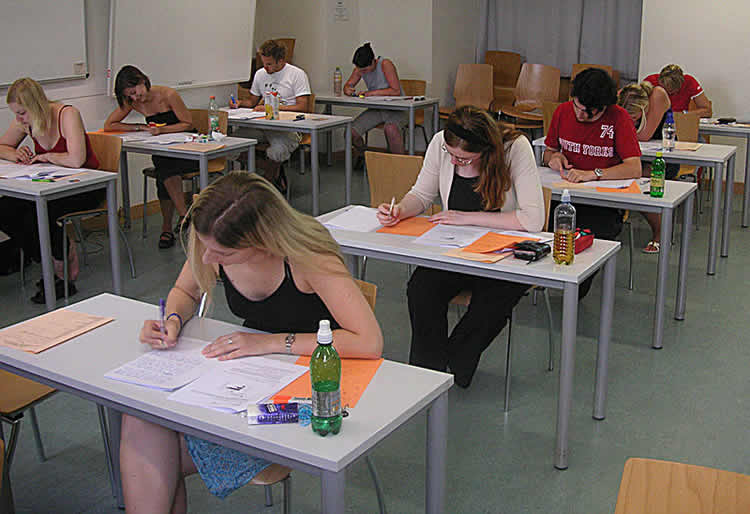New research, led by King’s College London finds that the high heritability of exam grades reflects many genetically influenced traits such as personality, behaviour problems, and self-efficacy and not just intelligence.
The study, published today in the Proceedings of the National Academy of Sciences (PNAS), looked at 13,306 twins at age 16 who were part of the Medical Research Council (MRC) funded UK Twins Early Development Study (TEDS). The twins were assessed on a range of cognitive and non-cognitive measures, and the researchers had access to their GCSE (General Certificate of Secondary Education) scores.
In total, 83 scales were condensed into nine domains: intelligence, self-efficacy (confidence in one’s own academic ability), personality, well-being, home environment, school environment, health, parent-reported behaviour problems and child reported behaviour problems.
Identical twins share 100% of their genes, and non-identical twins (just as any other siblings) share 50% of the genes that vary between people. Twin pairs share the same environment (family, schools, teachers etc). By comparing identical and non-identical twins, the researchers were able to estimate the relative contributions of genetic and environmental factors. So, if overall, identical twins are more similar on a particular trait than non-identical twins, the differences between the two groups are due to genetics, rather than environment.

Eva Krapohl, joint first author of the study, from the MRC Social, Genetic and Developmental Psychiatry (SGDP) Centre at the Institute of Psychiatry, Psychology & Neuroscience (IoPPN) at King’s, says: “Previous work has already established that educational achievement is heritable. In this study, we wanted to find out why that is. What our study shows is that the heritability of educational achievement is much more than just intelligence – it is the combination of many traits which are all heritable to different extents.
“It is important to point out that heritability does not mean that anything is set in stone. It simply means that children differ in how easy and enjoyable they find learning and that much of these differences are influenced by genetics.”
The researchers found that the heritability of GCSE scores was 62%. Individual traits were between 35% and 58% heritable, with intelligence being the most highly heritable. Together, the nine domains accounted for 75% of the heritability of GCSE scores.
Heritability is a population statistic which does not provide any information at an individual level. It describes the extent to which differences between children can be ascribed to DNA differences, on average, in a particular population at a particular time.
Kaili Rimfeld, joint-lead author, also from the IoPPN at King’s says: “No policy implications necessarily follow from finding that genetics differences influence educational achievement, because policy depends on values and knowledge. However, our findings support the idea that a more personalized approach to learning may be more successful than a one size fits all approach. Finding that educational achievement is heritable certainly does not mean that teachers, parents or schools aren’t important. Education is more than what happens to a child passively; children are active participants in selecting, modifying, and creating their experiences – much of which is linked to their genetic propensities, known in genetics as genotype–environment correlation.”
TEDS is supported by the UK Medical Research Council with additional funding from the National Institutes of Health.
Contact: Seil Collins – King’s College London
Source: King’s College London press release
Image Source: The image is credited to Electron and is in the public domain
Original Research: Full open access research for “The high heritability of educational achievement reflects many genetically influenced traits, not just intelligence” by Eva Krapohl, Kaili Rimfeld, Nicholas G. Shakeshaft, Maciej Trzaskowski, Andrew McMillan, Jean-Baptiste Pingault, Kathryn Asbury, Nicole Harlaar, Yulia Kovas, Philip S. Dale, and Robert Plomin in PNAS. Published online October 6 2014 doi:10.1073/pnas.1408777111






